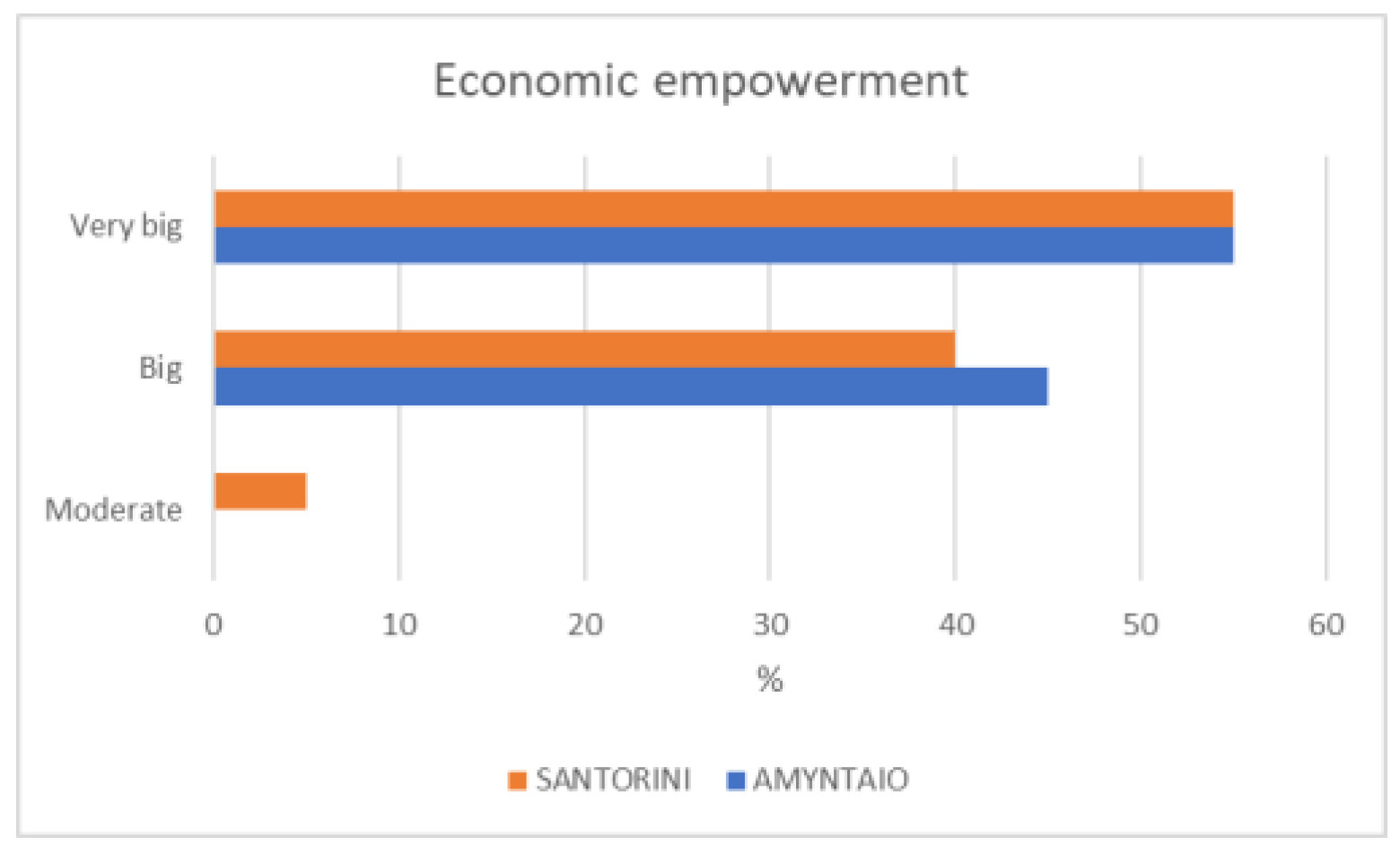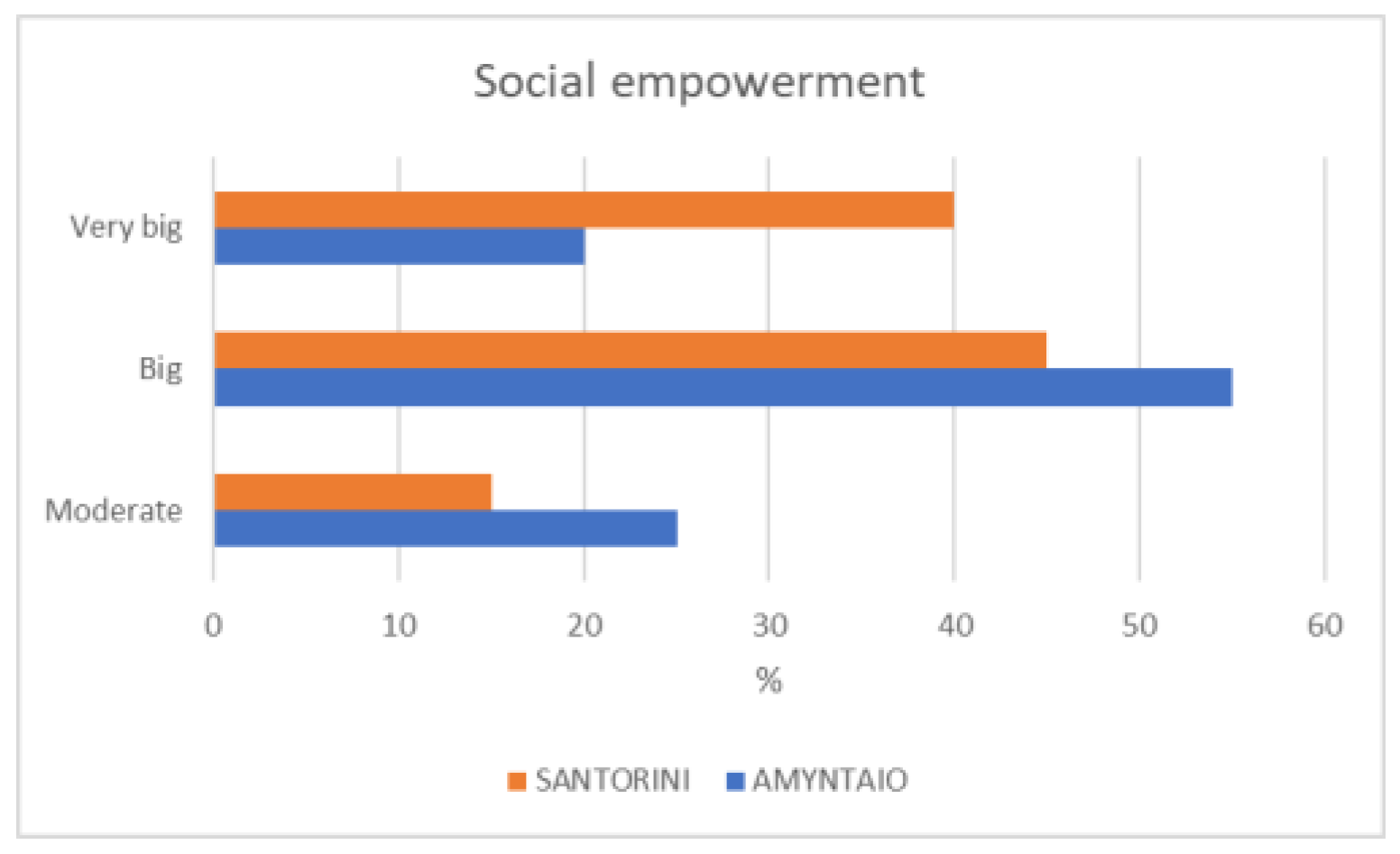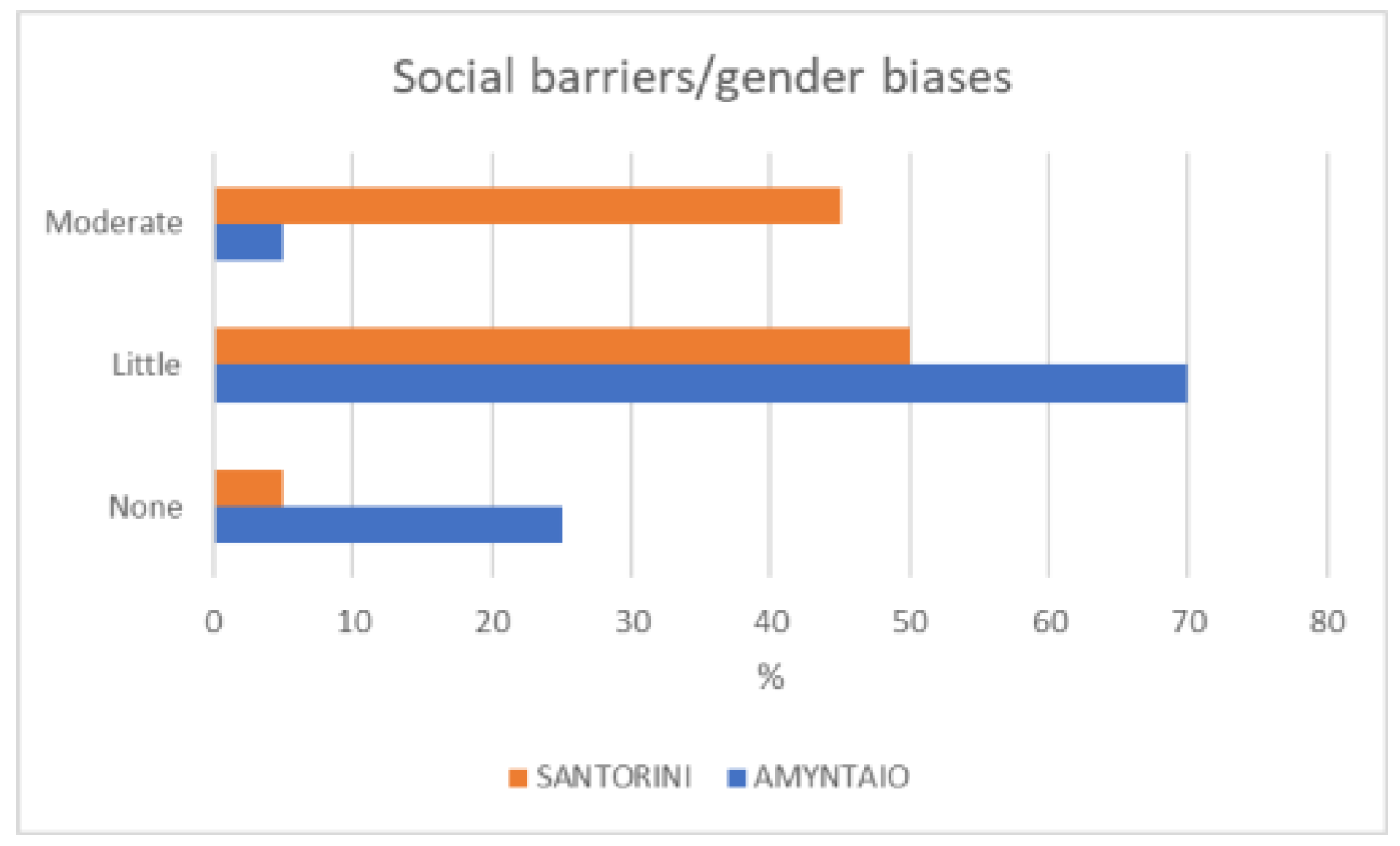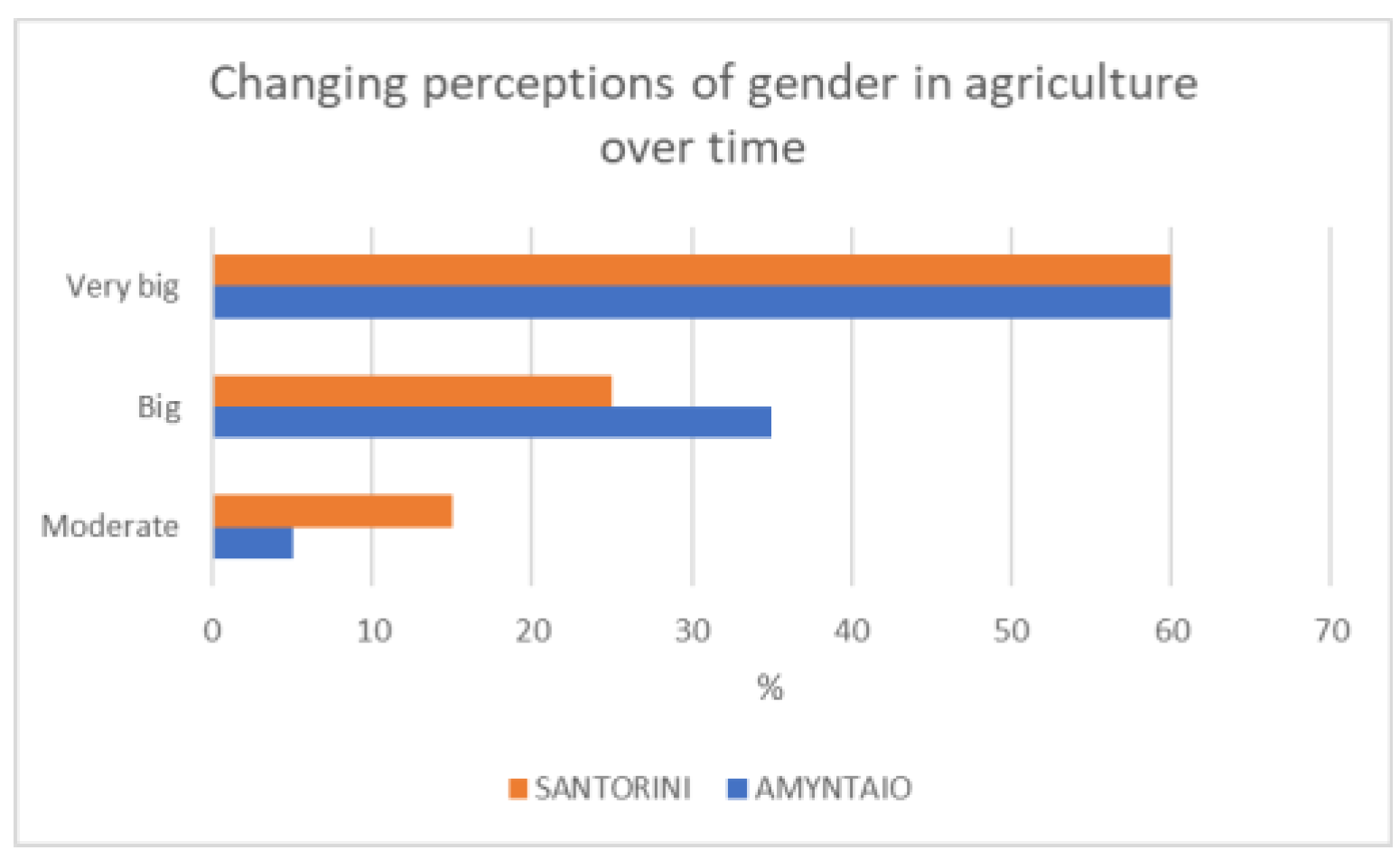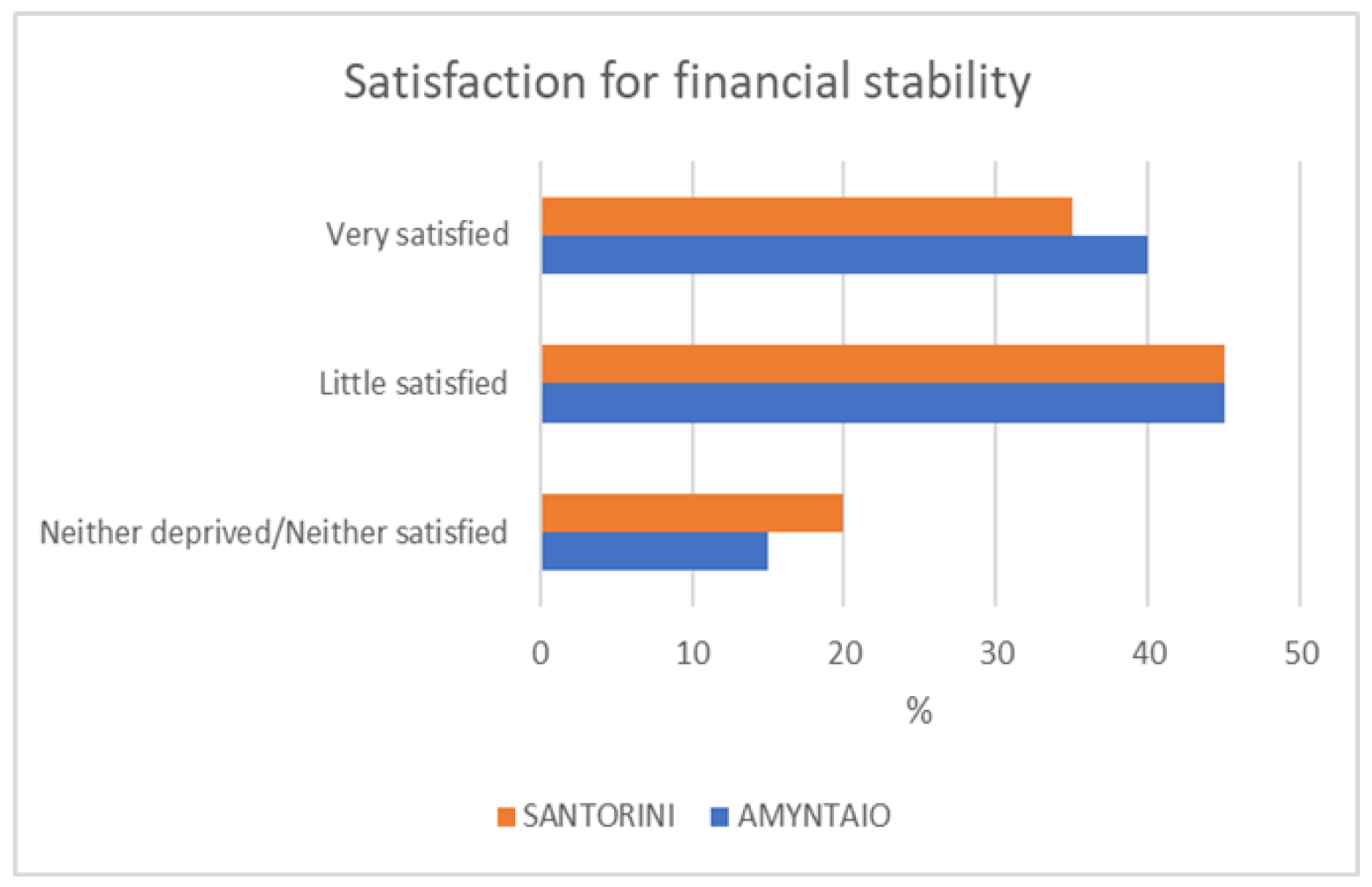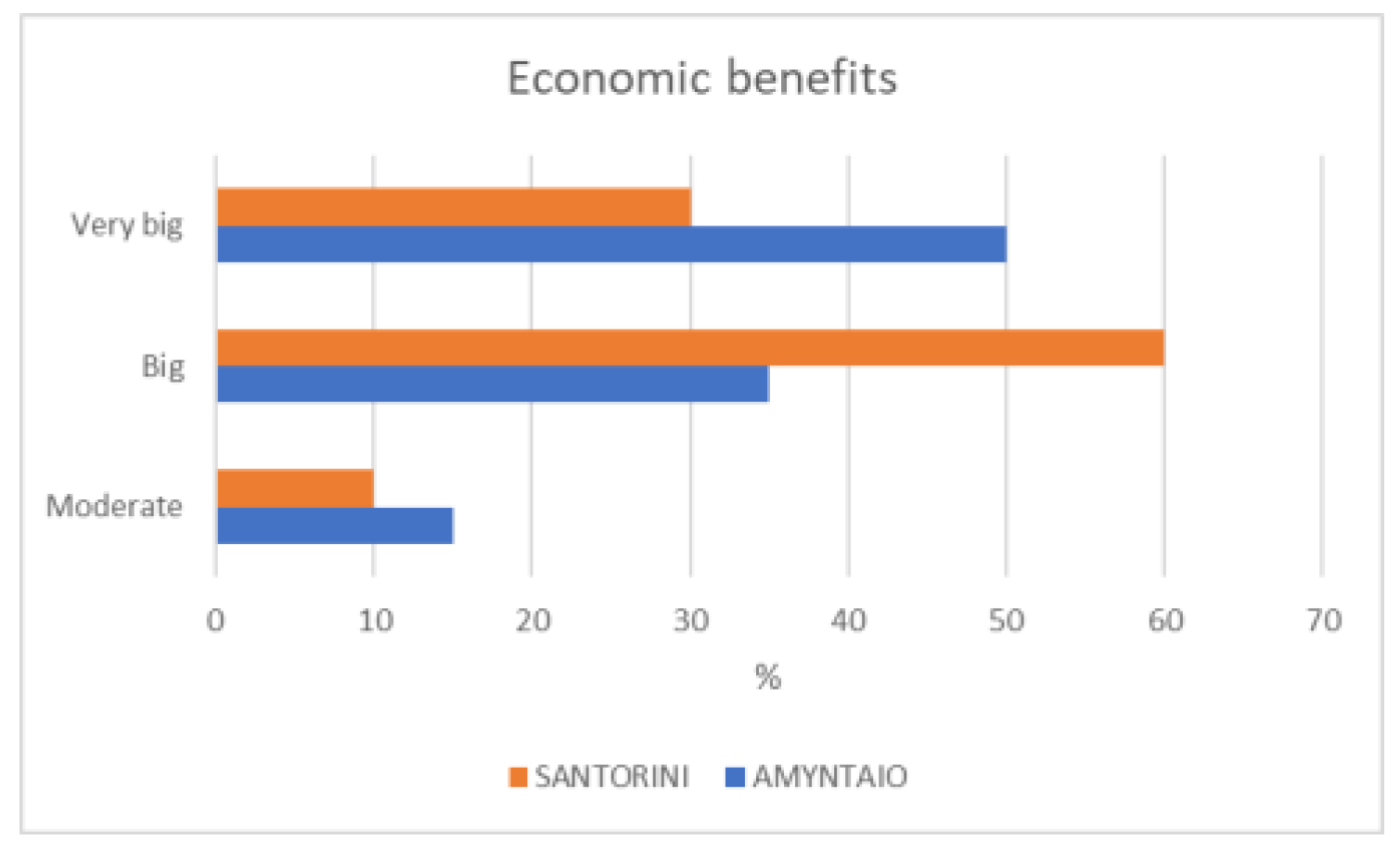1. Introduction
Agricultural cooperatives are collective actions and remarkable business models that have been an integral part of the agricultural sector, offering numerous benefits to their members. These cooperative groups play a crucial role in improving the well-being of their members while also enhancing the value and development of agriculture [
1]. They serve as socioeconomic institutions that give farmers the chance to work together, overcome the challenges they face, and address problems as a group [
2]. Agricultural cooperatives do this by establishing a positive environment that promotes cooperation, offers necessary tools and resources, and aids in the development and success of individual farmers [
2,
3,
4].
An important aspect of a cooperative membership is the sense of economic and social security it offers to its members. Economic security includes aspects like financial stability, access to input and output markets, an improvement in bargaining power, and income protection [
5]. Social security is the result of strong social relationships, mutual trust, and a sense of community within the cooperative, which creates a support system that may offer emotional and social assistance when necessary [
6,
7]. For evaluating the cooperatives’ success in achieving their goals and promoting the well-being of their participants, it is essential to comprehend the level of economic and social security provided to the cooperative members.
This study focuses on evaluating the female members’ social and economic safety in two agricultural cooperatives in Northern and Southern Greece. Our specific research objective is to determine whether women, as members of the agriculture cooperative, feel economically and socially secure as a result of their participation and to investigate any acknowledged improvements to their social well-being over time.
2. Theoretical Framework and Research Questions
A cooperative is a user-owned and user-controlled business from which benefits are derived and distributed on the basis of use [
8]. Based on this principle of cooperatives, it is clear that collaboration and social ties between the members are important factors in the cooperative’s success. In fact, while farmers have many economic reasons to establish a cooperative, a high amount of social capital among the potential members initiates their cooperative actions [
6]. This results in members developing expectations regarding the advantages or outcomes that they believe they will receive from joining the cooperative [
9]. Their expectation can regard both their financial performance and their social interactions, which drives the sense of belonging to a community.
In Greece, the family is a very important institution, emphasizing the value of mutual obligations within kinship and marriage bonds. These elements have a big impact on women’s overall position in the agri-food industry. There is broad agreement that gender continues to influence who leads agricultural cooperatives and who represents farmers in political discussions. The greater involvement of women in farm decision making throughout time has resulted in a favorable change [
10]. Their participation in cooperatives strengthens their position within their local society [
11], and this is why we wanted this study to target a group of female members of agricultural cooperatives.
Through this research, we aimed to investigate how these women view the connection between their gender and their position in the workforce. More specifically, our research questions were as follows:
To what extent do agricultural cooperatives act as platforms for women’s economic and social empowerment?
How does women’s active involvement in agricultural cooperatives affect their overall sense of economic and social security?
Can women overcome societal barriers and traditional gender norms through active engagement in agricultural cooperatives?
Does the economic well-being of women benefit from their significant contributions to the agricultural sector through active engagement in agricultural cooperatives?
Thus, the main objective of this paper is to provide empirical evidence by answering the above questions.
3. Methodology and Sampling
Because of the lack of statistical or previous research on this topic in agricultural cooperatives in Greece, qualitative analysis was used. Two agricultural cooperatives in Greece—one in the North (Amyntaio) and one in the South (Santorini)—were chosen for their sizeable proportion of female members and cooperative coiling activities, allowing for a comparison of mainland and insular regions.
From each cooperative, a total of 20 questionnaires were gathered to evaluate the economic and social security drawn from 20 women among 36 Amyntaio AC members and 20 out of 68 women among Santorini AC members. Purposive sampling was used in the study to pick cooperatives and individual farmers, and both qualitative and statistical methods, such as the SPSS analysis, cross-tabulation, and graph analysis of member profiles, were used for data analysis. Between July and September 2022, semi-structured questionnaires were used to collect primary data focused on demographics and 5-point Likert scale inquiries. The variables included the size of the farm enterprise, the age of the farm, the degree of specialization in farm activities, profitability, gross income, subjective norms, challenges, and cooperative experiences in order to determine what influences members’ sense of security.
4. Results
In both Amyntaio and Santorini cooperatives, female members, averaging around 41 years old with similar years of cooperative membership (around 12 years) but varying farm sizes (Amyntaio: 23.55 acres, Santorini: 14.9 acres) were included. Leadership roles were limited in both the cooperatives (Amyntaio: 80%, Santorini: 85% have not held leadership positions), but active participation in cooperative activities was high (Amyntaio: 75%, Santorini: 70%). Women viewed the two cooperatives positively, and they seemed to empower them both economically and socially. Notably, they both perceived their economic empowerment to a very big extent and their social empowerment as positive, with women in Santorini appearing more socially empowered (
Figure 1 and
Figure 2).
Also, women’s active participation and engagement in the cooperatives’ activities seemed to foster their economic growth and improve their social standing (
Figure 3 and
Figure 4).
Moreover, a few social barriers were faced based on gender biases in Amyntaio (70%), but more were faced in Santorini (85%) within the context of the cooperative, which they believed had a changing perception over time (
Figure 5 and
Figure 6).
Finally, they seemed to be overall satisfied financially by their engagement in the agriculture cooperatives as they received, to a large extent, economic benefits from them (
Figure 7 and
Figure 8).
5. Conclusions
It is considered that cooperatives have been recognized as important platforms for women’s economic and social empowerment. Women who actively participate in agriculture cooperatives report a heightened sense of both economic and social security (
Figure 1 and
Figure 2). Through their active participation, women gain a stronger sense of belonging and empowerment within their communities, which contributes to their overall social security. Due to obstacles like restricted access to resources, cultural norms, and societal expectations, women’s confidence and perceived agency in making economic decisions have been impacted. Biases against women may prevent them from participating fully in agriculture cooperatives and affect how secure they feel financially.
Author Contributions
Conceptualization, S.T., M.F. and P.S.; methodology, S.T. and M.F.; software, S.T. and M.F.; validation, S.T., M.F. and P.S.; formal analysis, S.T. and M.F.; investigation, S.T. and M.F.; data curation, S.T. and M.F.; writing—original draft preparation, S.T. and M.F.; writing—review and editing, S.T., M.F. and P.S.; visualization, S.T.; supervision, P.S.; project administration, P.S. All authors have read and agreed to the published version of the manuscript.
Funding
This research received no external funding.
Institutional Review Board Statement
Not applicable.
Informed Consent Statement
Informed consent was obtained from all subjects involved in the study.
Conflicts of Interest
The authors declare no conflict of interest.
References
- Batzios, A.; Kontogeorgos, A.; Chatzitheodoridis, F.; Sergaki, P. What Makes Producers Participate in Marketing Cooperatives? The Northern Greece Case. Sustainability 2021, 13, 1676. [Google Scholar] [CrossRef]
- Mojo, D.; Fischer, C.; Degefa, T. The determinants and economic impacts of membership in coffee farmer cooperatives: Recent evidence from rural Ethiopia. J. Rural. Stud. 2017, 50, 84–94. [Google Scholar] [CrossRef]
- Ahmed, M.H.; Mesfin, H.M. The impact of agricultural cooperatives membership on the wellbeing of smallholder farmers: Empirical evidence from eastern Ethiopia. Agric. Food Econ. 2017, 5, 1–20. [Google Scholar] [CrossRef]
- Wassie, S.B.; Kusakari, H.; Masahiro, S. Inclusiveness and effectiveness of agricultural cooperatives: Recent evidence from Ethiopia. Int. J. Soc. Econ. 2019, 46, 614–630. [Google Scholar] [CrossRef]
- Sergaki, P.; Michailidis, A. Small-Scale Food Producers: Challenges and Implications for SDG2. In Zero Hunger. Encyclopedia of the UN Sustainable Development Goals; Leal Filho, W., Azul, A., Brandli, L., Özuyar, P., Wall, T., Eds.; Springer: Cham, Switzerland, 2020; pp. 787–799. ISBN 978-3-319-95674-9. [Google Scholar]
- Deng, W.; Hendrikse, G.; Liang, Q. Internal social capital and the life cycle of agricultural cooperatives. J. Evol. Econ. 2021, 31, 301–323. [Google Scholar] [CrossRef]
- Kustepeli, Y.; Gulcan, Y.; Yercan, M.; Yıldırım, B. The role of agricultural development cooperatives in establishing social capital. Ann. Reg. Sci. 2020, 70, 681–704. [Google Scholar] [CrossRef]
- Dunn, J.R. Basic cooperative principles and their relationship to selected practices. J. Agric. Coop. 1988, 3, 83–93. [Google Scholar]
- Hansen, M.H.; Morrow, J.; Batista, J.C. The impact of trust on cooperative membership retention, performance, and satisfaction: An exploratory study. Int. Food Agribus. Manag. Rev. 2002, 5, 41–59. [Google Scholar] [CrossRef]
- Tsiaousi, A.; Partalidou, M. Female farmers in Greece: Looking beyond the statistics and into cultural–social characteristics. Outlook Agric. 2021, 50, 55–63. [Google Scholar] [CrossRef]
- Sergaki, P.; Partalidou, M.; Iakovidou, O. Women’s agricultural co-operatives in Greece: A comprehensive review and swot analysis. J. Dev. Entrep. 2015, 20, 1550002. [Google Scholar] [CrossRef]
| Disclaimer/Publisher’s Note: The statements, opinions and data contained in all publications are solely those of the individual author(s) and contributor(s) and not of MDPI and/or the editor(s). MDPI and/or the editor(s) disclaim responsibility for any injury to people or property resulting from any ideas, methods, instructions or products referred to in the content. |
© 2024 by the authors. Licensee MDPI, Basel, Switzerland. This article is an open access article distributed under the terms and conditions of the Creative Commons Attribution (CC BY) license (https://creativecommons.org/licenses/by/4.0/).
